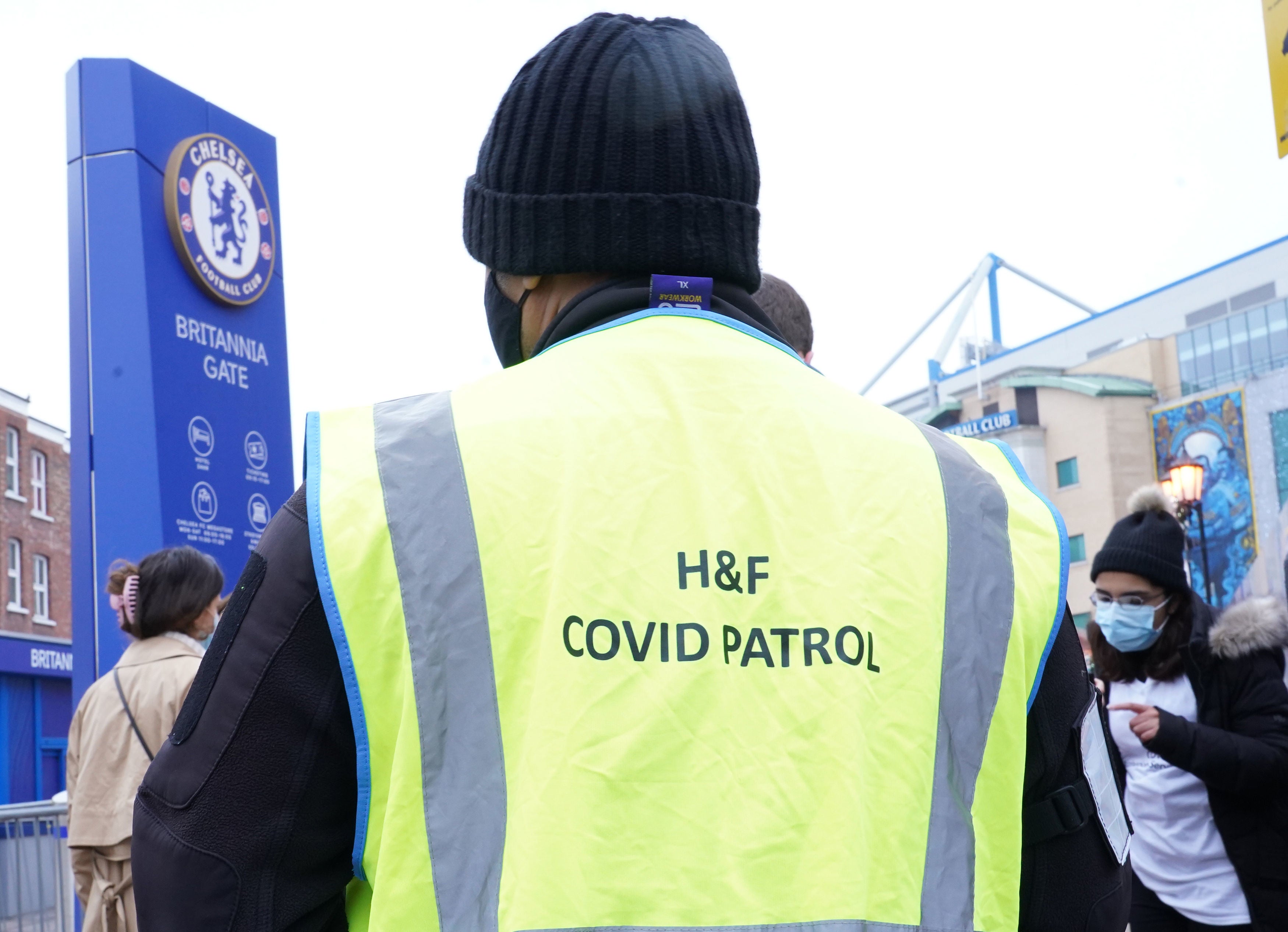Indoor mixing biggest risk factor for spread of Omicron, experts warn
Experts said that stricter measures may be needed for Omicron, because of its transmissibility.

Your support helps us to tell the story
From reproductive rights to climate change to Big Tech, The Independent is on the ground when the story is developing. Whether it's investigating the financials of Elon Musk's pro-Trump PAC or producing our latest documentary, 'The A Word', which shines a light on the American women fighting for reproductive rights, we know how important it is to parse out the facts from the messaging.
At such a critical moment in US history, we need reporters on the ground. Your donation allows us to keep sending journalists to speak to both sides of the story.
The Independent is trusted by Americans across the entire political spectrum. And unlike many other quality news outlets, we choose not to lock Americans out of our reporting and analysis with paywalls. We believe quality journalism should be available to everyone, paid for by those who can afford it.
Your support makes all the difference.Indoor mixing is the “biggest risk factor” for the spread of the Omicron variant of coronavirus, experts have warned, as documents revealed advisers cautioned that large gatherings risked creating “multiple spreading events”.
Documents released by the Scientific Advisory Group for Emergencies (Sage) on Saturday revealed the advice which had been given to ministers by the body.
And at a meeting Thursday, the experts said that stricter measures may be needed for Omicron, because of its transmissibility.
Minutes from the meeting said that this could include “reducing group sizes, increasing physical distancing, reducing duration of contacts and closing high-risk premises”.
And they said that lateral flow tests should also be used on a group basis – so if one person in a group tests positive before going to an event, their whole group should also not attend, even if they did not test positive.
The experts warned that “hospitalisations in UK will reach high levels in about two weeks even if transmission is reduced soon”, and predicted between 1,000 and 2,000 hospital admissions per day in England by the end of the year.
And the ramping up of the booster programme would not help, as many of those admissions would be those who are infected now.
They said that in some scenarios, the situation in the spring could be worse than that seen in 2020, and that without measures further than the current Plan B hospital admissions could peak at 3,000 a day.
But they stressed there were many “uncertainties”.
It comes after Stephen Reicher professor of social psychology at the University of St Andrews and member of Sage, said it was clear that Plan B measures alone would not be enough to stop the spiralling numbers of cases.
Prof Reicher, who was speaking to Times Radio in a personal capacity, said the time to act was now.
Prof Reicher said “all the science suggests that (Plan B is) not going to be enough”.
He added: “The only way really, or at least the most effective way, we can have an immediate effect is to decrease the number of contacts we have.
“In many ways, the most effective way of diminishing contact is to have a circuit-breaker.
“Now, you could have it after Christmas, the problem is after Christmas it’s probably too late, it’s probably by then we will have had a huge surge of infections with all the impact upon society.
“When people say ‘look, we don’t want to close down’, of course, we don’t want to close down. But the problem is at the moment, things are closing down anyway, because of the spread of infection.
“So I think we need to act now.”
Cabinet ministers have received a briefing on the latest situation regarding the Omicron variant.
There was no meeting of the Cabinet or further discussion, but ministers were given an update on the data surrounding the variant.
Lord Victor Adebowale, chairman of the NHS Confederation, voiced support for a circuit-breaker, warning that a cautionary approach should be taken.
A further 90,418 lab-confirmed Covid-19 cases have been recorded in the UK as of 9am on Saturday, the Government said.
A further 125 people had died within 28 days of testing positive for Covid-19.
Separate figures published by the Office for National Statistics show there have now been 172,000 deaths registered in the UK where Covid-19 was mentioned on the death certificate.
Meanwhile, the World Health Organisation said the Omicron variant had been identified in 89 countries as of Thursday and had a doubling time of between 1.5 and three days.
It said data is still limited on the severity of the strain, but added: “Given rapidly increasing case counts, it is possible that many healthcare systems may become quickly overwhelmed.”
A Government spokesperson said: “The Government will continue to look closely at all the emerging data and we’ll keep our measures under review as we learn more about this variant.”